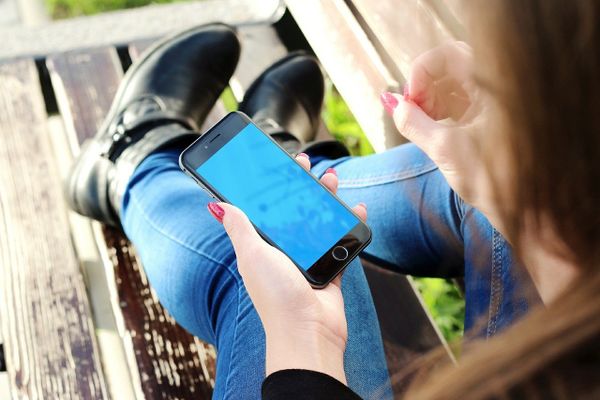iPhones now work as physical security keys for Google services

As multi-factor authentication becomes ubiquitous across all digital services, Google is adding a new safety net for security-conscientious iPhone owners. Apple customers can now use their shiny smartphones as security keys to access Google services securely.
The latest update to the Google Smart Lock app on iOS enables a feature previously only available to Android users – the ability to use the iPhone as a physical security key. The search giant calls it “the best second factor protection for your Google Account,” and for good reason.
Bluetooth means physical proximity required
For the feature to work, users need Bluetooth switched on, both on the phone and on the secondary device doing the login. This means the phone, which now acts as a physical security key, needs to be close to the device on which the user is trying to authenticate.
Some speculate this could open up a new can of worms in terms of security, since an attacker could theoretically take advantage of an already unlocked device. However, there are not too many situations where a user would leave their phone unlocked and unattended. Furthermore, every smartphone, be it Android or iOS, is designed to lock itself if left idle.
How to Set up your iPhone as a security key
- On your computer, launch a browser (preferably Chrome) and go to myaccount.google.com/security
- Under “Signing in to Google,” select 2-Step Verification and sign in if prompted to do so
- Tap Add Security Key
- Select your iPhone and then Add
- Follow the on-screen instructions
- Install the Google Smart Lock app (if you haven”t already)
- Open Smart Lock and tap “Yes, I”m in to complete the set up”
- For the feature to work, users need to allow Smart Lock to do notifications
Multi-factor authentication is key to good cybersecurity hygiene, both for regular people and for corporations. Failure to use a secondary device for authentication leaves the door wide open to bad actors looking to infect your computer, steal your banking information, take over your smart devices, or breach your organization and hold your data for ransom.
Google”s update may not do much to secure a business, but it”s a very good addition to the company”s Advanced Protection Program (APP) for customers worldwide. If you”re an iPhone owner using Google”s services regularly, the new use-your-phone-as-security-key is a must.
tags
Author
Filip has 15 years of experience in technology journalism. In recent years, he has turned his focus to cybersecurity in his role as Information Security Analyst at Bitdefender.
View all postsRight now Top posts
How to Protect Your WhatsApp from Hackers and Scammers – 8 Key Settings and Best Practices
April 03, 2025
Outpacing Cyberthreats: Bitdefender Together with Scuderia Ferrari HP in 2025
March 12, 2025
Streamjacking Scams On YouTube Leverage CS2 Pro Player Championships to Defraud Gamers
February 20, 2025
How to Identify and Protect Yourself from Gaming Laptop Scams
February 11, 2025
FOLLOW US ON SOCIAL MEDIA
You might also like
Bookmarks








